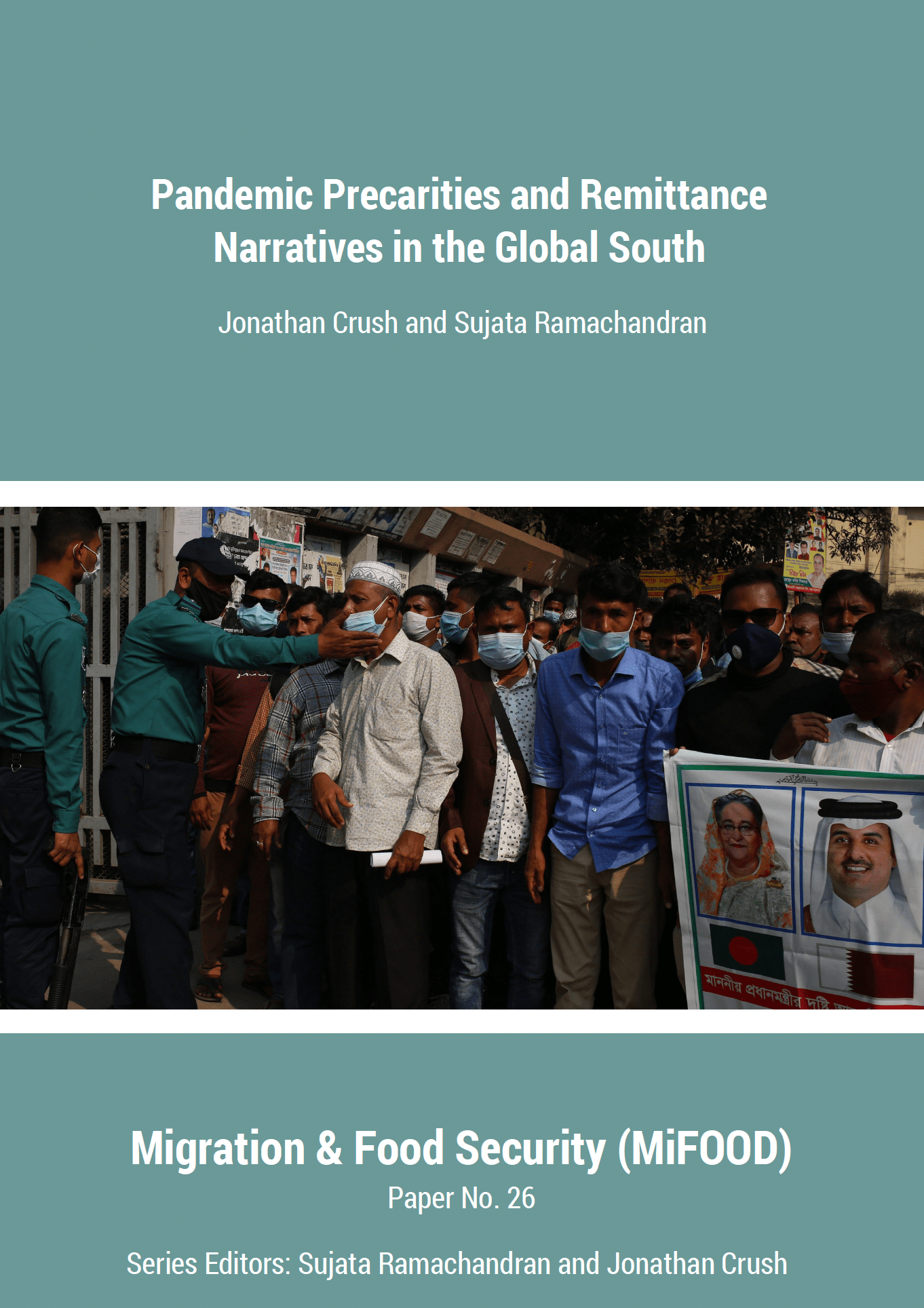The COVID-19 pandemic has been referred to as a great disruptor of global migration leading to a crisis of immobility caused by public health lockdowns, closed borders, and the suspension of visa processing. Layoffs and retrenchments of migrant workers led to widespread hardship and an intensification of pre-pandemic precarity, as well as disrupted remittance channels and flows. Against this backdrop, the paper provides an overview of current debates about the relationship between COVID-19 and international migration in the context of South-South migration. We assess how pre-pandemic South-South migration flows were disrupted by the pandemic and the evidence for a crisis of immobility. We advocate use and measurement of the new concept of ‘pandemic precarity’ to draw attention both to the negative impacts of the pandemic on migrants and the ways in which pre-pandemic vulnerabilities were exacerbated by COVID-19. Finally, the paper focuses on the apparent paradox of increased remittances despite a reduced capacity to remit.

